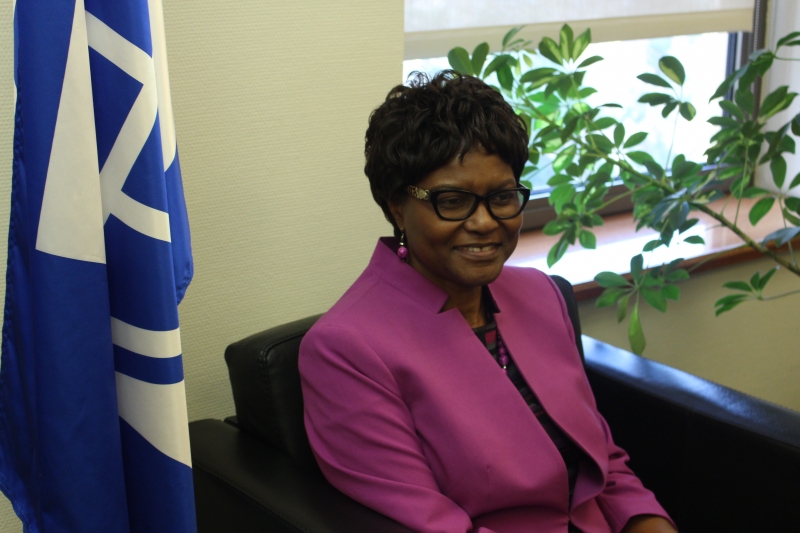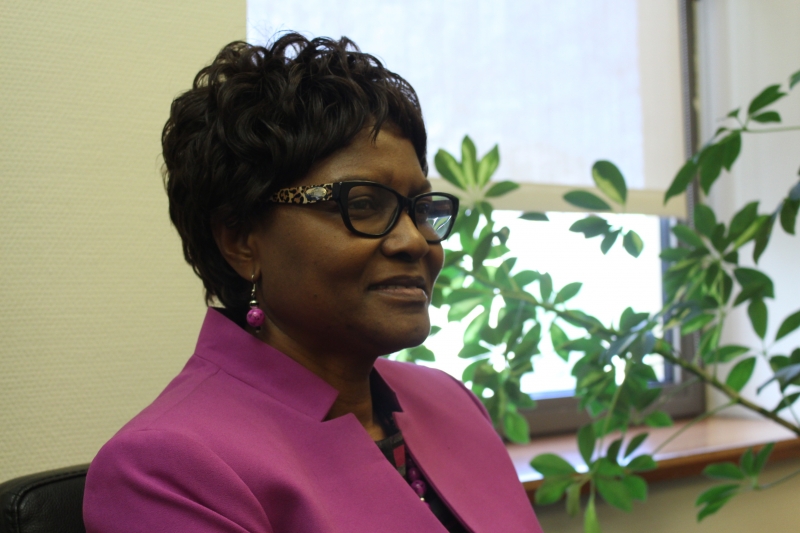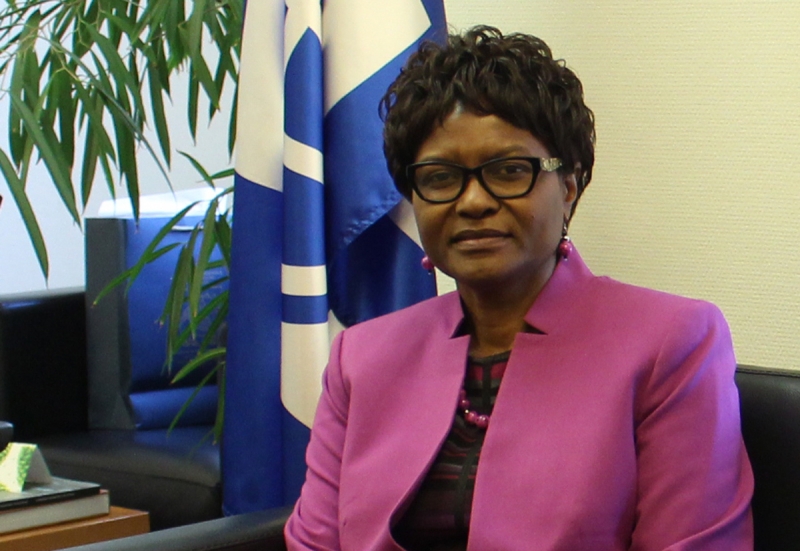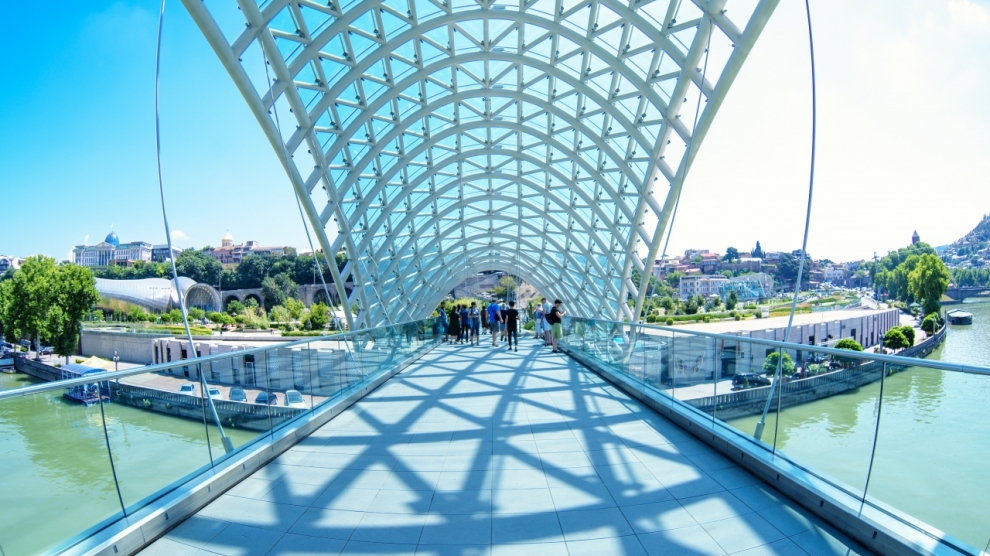As the World Bank racks up 25 years in Georgia, Mercy Tembon, the bank’s regional director for the South Caucasus, Europe and Central Asia tells Andrew Wrobel that her organisation is as committed to the country’s future as ever.
Let’s start with the anniversary. What has the World Bank been doing here for the last quarter of a century?
Yes, Georgia, along with the other countries in the region, joined the bank in 1992. Those were very turbulent years for Georgia. It was a difficult time because they had just broken away from the Soviet Union, and Russia. It was a low-income country, a developing country. There was very little infrastructure, and what infrastructure did exist was in a very poor state.
The first thing we did here was to help the country set up all the institutions that they needed to function as a country. The Bank’s first loan, of 10 million US dollars, was designed to expand the government’s capacity to move Georgia to a market economy. Since then, we’ve made investments of up to 3.4 billion US dollars in this country, money which has gone into infrastructure like roads, energy, water, buildings and housing, agriculture and regional development.
We have also supported Georgia in the social sector: education, health and social protection, given that more than 50 per cent of the population lived below the poverty line when they joined the World Bank. Since then the percentage has fallen significantly to about 20 per cent. It’s still high. But it’s a dramatic and significant drop in the number of people who are poor. The country has grown from a low-income country with a GDP per capita of less than 400 US dollars, to a GDP per capita of around 3,800 US dollars. It’s now a middle-income country.

What are current projects focused on?
We’re still investing a great deal in transport. We were the pioneers of financing the East-West Highway and we still have about two or three projects along that particular highway: it is a long route. We build the portions of the road which require many bridges and present other challenges.
We are also involved in energy transmission, making sure it gets from the site of its production to the consumers who need it, via reliable distribution lines.
Then there is irrigation. Agriculture is extremely important in this country and we are supporting Georgia with irrigation networks so that agricultural production can continue all year round. We have the Georgia National Innovation Ecosystem (GENIE) project, which is responding to the needs of the global market. It’s a project that is helping increasing knowledge, ICT, and providing the skills for people to start their own businesses. This project is fascinating because it’s more about technology. It’s more about tooling young people, school graduates, to be able to design and then actually launch products in the labour market.
You will have no doubt heard that Georgia welcomed more than 6 million tourists last year. This is because the government has worked very carefully at revamping the infrastructure in the regions, making the environment conducive for tourist visits. Visitors have somewhere to stay, they have restaurants, they have hotels. Right now, we’re doing some work in extending the road in Kazbegi up to the Holy Trinity Church, as well as some other projects. I have been to Telavi and Kakheti and seen for myself just how the communities have changed because of our regional development projects.
As I said, we do not only carry out investments in infrastructure, we also help with policy development, reforms. We’ve supported the government in carrying out reforms which have improved the business environment.
We are also working on making sure that the law is favourable for investors. And remember that Georgia is an outgoing country. They have free trade agreements with quite a number of countries. Georgia recently concluded new agreements with China, Japan, and Turkey amongst others.
And what of the role of the EU?
Being part of the Deep and Comprehensive Free Trade Area (DCFTA) has opened up markets for Georgia. This is a small country, so integrating itself into the global food chain is the way to go, and they’re doing that. We have just undertaken a systematic country diagnosis (SCD). The growth model that the country now has is good, the government just needs to continue doing what it’s doing.
Our portfolio is robust because, within the context of development policy operations, we look at the education sector, universal healthcare, at social protection, and areas in which the public sector really has to have a presence. Of course, the private sector can help build roads and other infrastructure sites, but when it comes to the human capital and the social sector of this country, you first need investment from the government which the private sector will complement. And so the government’s reforms supported by us have been in this direction. That’s the third aspect of our support, in addition to investment loans and development policy: we’ve also been very, very active in producing knowledge. We’ve undertaken a number of studies which have served as underpinnings for investment. For example, we just produced an energy policy note which is looking at the investments that Georgia is making in hydro, thermal, and other forms of energy, in order to stratify that investment to see which areas give the best return.
We’ve also done studies on jobs and skills. Because if you look at one of the issues that came up in the SCD it is that human capital is not quite aligned with the requirements of the job market. There are plenty of university graduates, but they do not always have the skills that today’s labour market requires.
I am happy to report, however, that the Ministry of Education and Science understands the need to develop these skills. The labour market today is more about thinking, it’s more about designing things, with less need for the labour-intensive activities that we have been used to. Not that Georgia doesn’t have these skills, it does, just not always where they are needed. But change is coming.

Circling back to the Doing Business Report, it is clear Georgia is one of the leaders in the region. What do you think Georgia has done to become so much more successful than Armenia, Azerbaijan or even countries like Ukraine or Moldova?
Georgia has distinguished itself from the others because of its reformist tendencies. Let’s start with the banking sector, which in this country is very robust. Georgia has a very highly capitalised banking sector, and it has the lowest amount of non-performing loans. Over the past 10 years, they’ve put in place policies that have liberalised the economy. Georgia was one of the first countries to float its currency. So when you had all of these regional shifts and shocks, they didn’t quite affect Georgia as much as they did the neighbours, stuck on a fixed exchange rate. But Georgia’s exchange rate had been liberated, and reforms had been put in place. It is the capacity to change, the political will to pass tough constitutional reforms through parliament, that has put Georgia ahead of the others.
The other aspect that I see in all of this is that success breeds success. The fact that they have opened up, that they allowed foreign direct investors to enter the market: this led to growth. And this growth keeps attracting more investment.
What do you think are the biggest challenges right now, both for the economy and on the political stage?
Besides the mismatch of skills and jobs, which I have touched on, I think one of Georgia’s greatest challenges now is its demography. The population is ageing and it’s declining. A couple of years ago it was 4 million. Now we’re at 3.7 million. It’s not so much because of emigration, it’s the ageing that is happening within the country, the birthrate is low. That presents many challenges. As people age, their need for social care, healthcare and social protection increases. Georgia has a universal healthcare policy, but the cost of that is increasing exponentially. Why? Because you need to take care of these people.
From the perspective of foreign investors, is that the only concern or is there anything else that foreign investors should be worried about when it comes to doing business here?
During our discussions with the private sector, when we were doing the SCD, two issues came up. The first was the need for the right kind of skills, which I have already talked about at length. The other issue was making sure that more women get involved in the economy, especially in rural areas. Remember, women represent half of the population. Their active participation in the economy is extremely important. Just getting the numbers up from the female side. Because when women know how to do something, they often do it better than men.

My final question is about the economic growth and the prospects for the years to come. How do you see things?
Our outlook for Georgia is positive. It has gone through some shocks over the past couple of years, but the outlook is great. At present, the economy is growing at 4.5 per cent, which is good. But, remember, before the crisis, growth was almost in double digits. Then the crisis hit and everything went up in smoke. But right now the economy is on an upward trend, and our advice to the government has been to prepare for the shocks, which it knows are coming. These things are cyclical; you better prepare. It makes you more resilient.
Exports are increasing, foreign direct investment is on the up and the private sector is expanding. They are doing everything possible to develop the skills they need. They’re integrating into the global economy. They have all the right ingredients in place. All that is left is to maintain prudent macro-fiscal policies and open up the private sector a lot more. Invest where they need to invest and let the private sector take over in the areas where it does things best. Once all of that happens, the future for Georgia is bright.


Add Comment